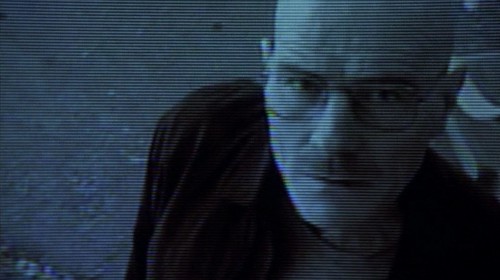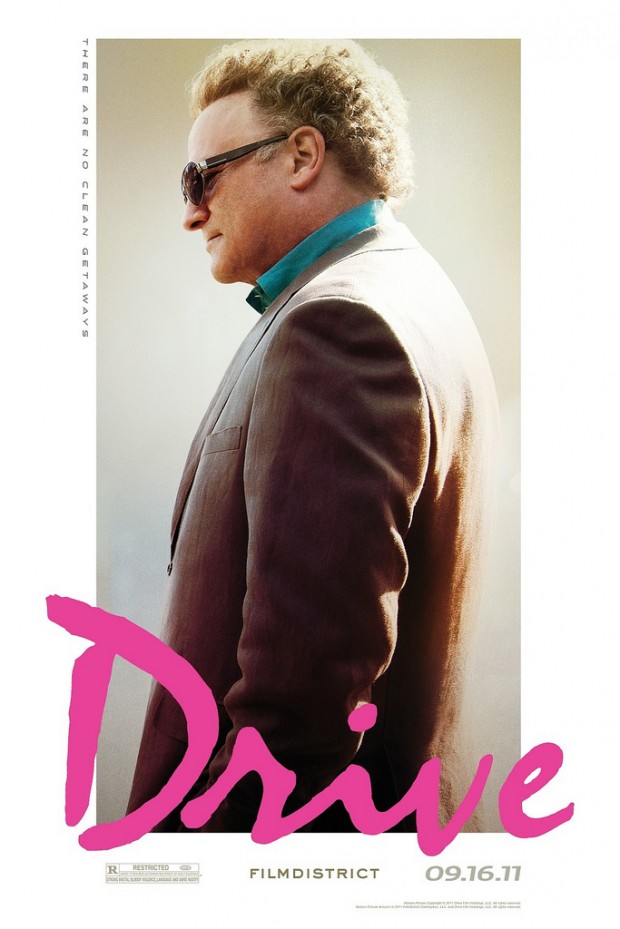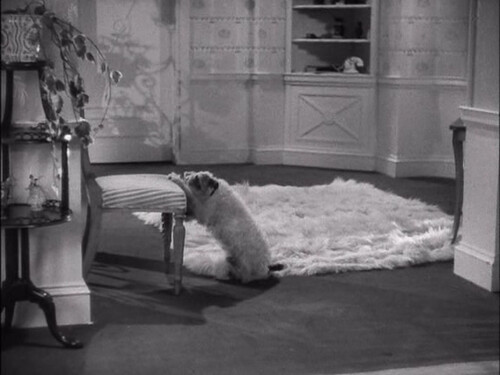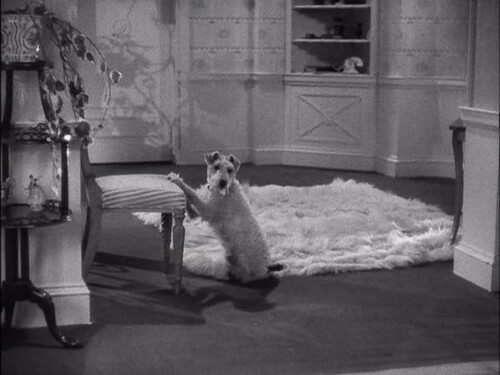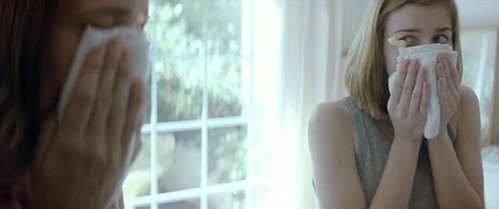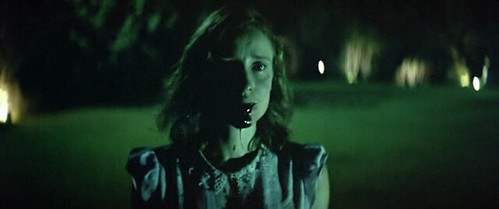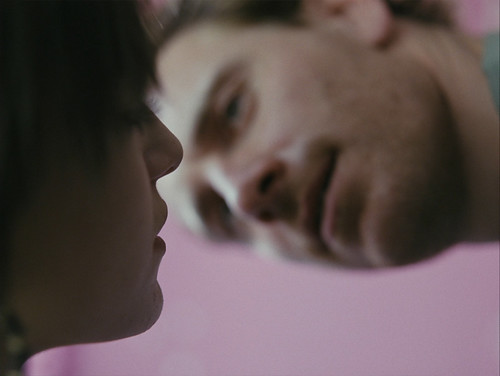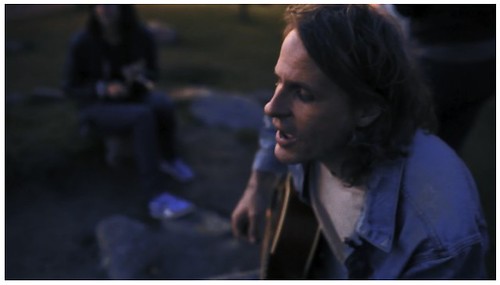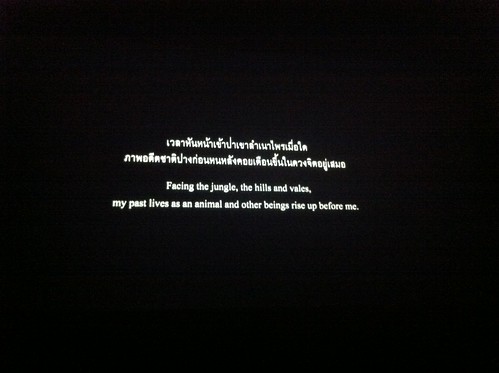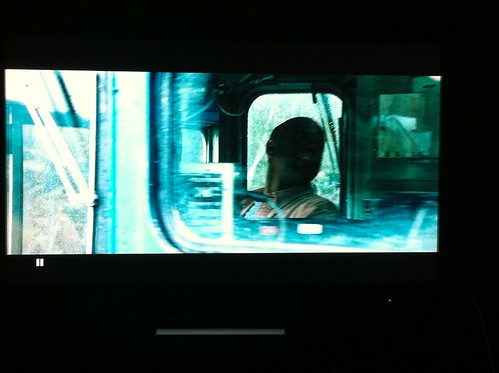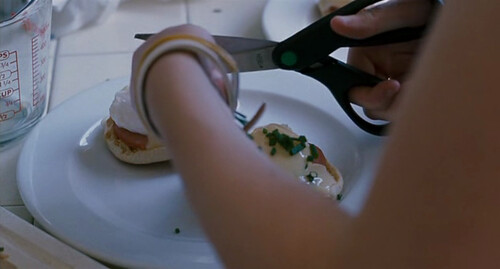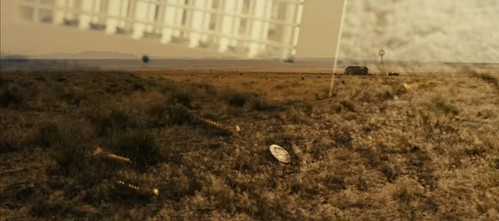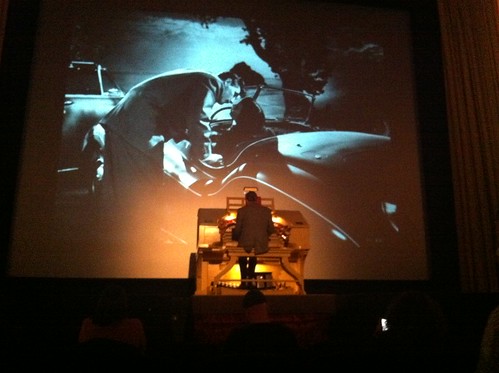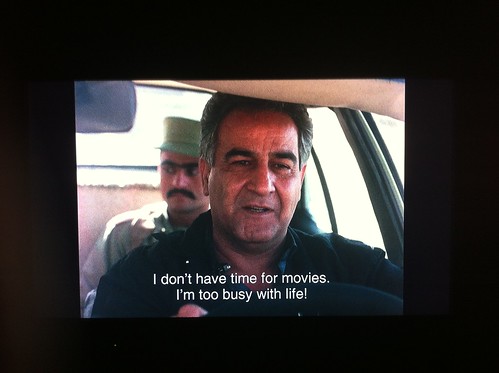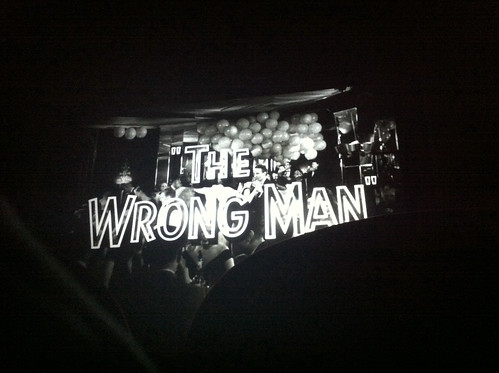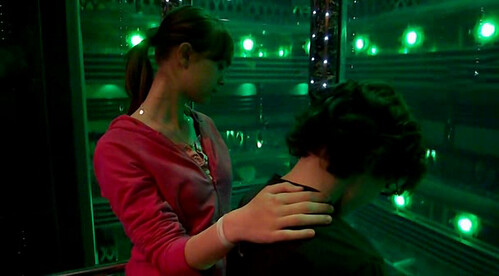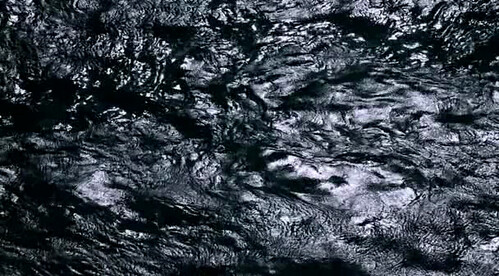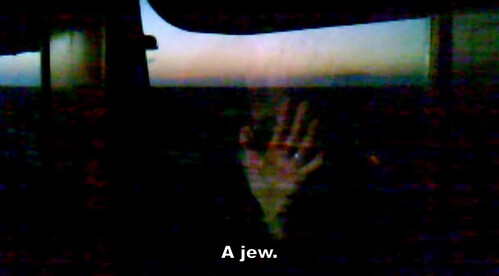Viewing Log #85: When you are the cancer
by Ryland Walker Knght
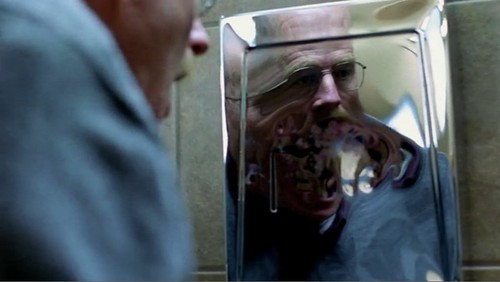
[Amidst a few other films I watched and writing projects I kept chipping away at in August, I finished the second season of AMC's Breaking Bad.]
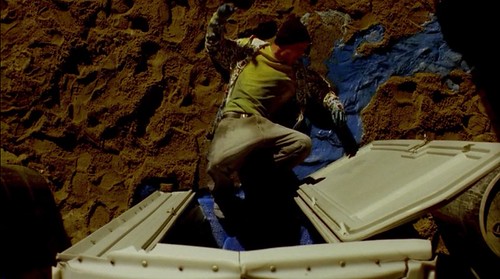
Right off the bat: Skyler is the worst. Anna Gunn is brave, but Skyler is as unsympathetic a character as I've ever seen. So much so that I had to stop watching the episodes back to back, as is the common desire with instant/on-demand viewing. However, I quickly fell back into plowing through one episode then another, in part because I'm attracted to how condensed the story is compared to, say, Mad Men, where time's certainly not of the essence unless by dint of the television medium's format (seems there's a lot of "something's gotta happen eventually" in MM). It's not as condensed and rigorous as either Milch HBO show (to date) but then even Deadwood feels like years given all the time that passes in between its season arcs. Breaking Bad, on the other hand, though it plays with time some, is mostly driven by a consequential logic. In other words, I was surprised to see this season start precisely where the last one ended. But it makes sense.
The genius of the show, if I can use that word, is how much attention is paid to every step Walter takes towards villainy. We get to watch a basically good brain go, yes, bad. We see all the rationale behind his choices, sometimes without words. I told a friend it was like Dostoevsky and I meant it. But the delusion of doing wrong in the name of good isn't just a trope of the great Russian depressive; it's really rather common. The idea of "white lies" comes from somewhere not related to white nights. I think it comes from everyday life. One must contend, all the time, with too many compromising choices to remain moral. However, this show, unlike those Milch masterpieces, isn't concerned with the ethical life. No, this is just the wrong way to do things. Remember the title: it's forgoing the righteous path.
And if Mad Men is about television as advertising, Breaking Bad is certainly about television as a drug: a perfectly calibrated bit of magic that keeps you coming back for more, designed to hit you where it hurts and where it feels the best. (Why else watch more than one episode at a time, right? It becomes a compulsion, if not outright addiction.) This show, like The Sopranos, makes you complicit, designs a rooting interest in Walter, and dares you to not get excited with him and for him. Until, of course, he explodes and, as his brow lowers, all that venom bubbles up. The most obvious and scary instance of this is when he beats up that towel dispenser (see evidence above). Unlike The Sopranos, nothing is glamorous here. There's nothing sexy about two men making meth in a desert, or anything related to meth. Hell, the meth cooking passages are my least favorite parts of the show. Krysten Ritter may be sexy, but the show goes out of its way to make her unsexy by the end of her character's sad, pathetic, idiotic life. Her death, after all, is just another instance of Walter's growing selfishness as the root of his growing evil. For Walter's whole trajectory is about taking control of his life. But he's pretty lousy at that, too, since he's only ever looking for shortcuts. And, again, the show shows us that these are all myopic moves from a novice. That's maybe my favorite part: these people are idiots.
Walter is a chemistry genius, I suppose, but he's a child compared to Pollos Gus. (Giancarlo Esposito is so awesome at his two face it's incredible; yet another movie-quality actor brought to television and instantly upping the ante.) I suspect he will change the game going forward quite a bit more than Saul Goodman, though Bob Odenkirk is about as crucial an element as can be. After all, he's the only one expressly keeping the comedy going. He has his moments of clarity and seriousness but he's mainly there to act the fool, to play dumb—though he's not dumb, at least not as dumb as Walter—to show the other dummies how dumb they are. This vision of comedy is quite close to condescension. I get that. But nothing's so simple in this show. It's a black comedy, after all, where everything farcical is tied to horror. The horrific is often papered over by laughter in order to diffuse tension, but sometimes horrible things are just horrible. Like letting a girl choke to death on smack-induced vomiting. Other times, horrible things can be hilarious—because they're so stupid—like Saul's whole wardrobe.
Not sure what to do with the framing device of the season, but the tidy color coding of the teddy and Walter's sweater seems obvious. Walter is adrift, charred by wrong. And all that build up to that collision seems like a ploy, not plotting. I cannot imagine how that's going to actually effect the trajectory of Season Three other than Jesse's already rock bottom self-esteem flatlining a little longer. But maybe we're (I'm) in for another rise. Maybe Jesse will seize sobriety and do some things right. Worst case, which it usually is, he'll be a marginally better criminal because he'll be clean. Best case, it'll complicate how Walter sees him, because Jesse is certainly something in his life that Walter can and has controlled. I doubt Jesse will learn how to interpret his way out of manipulative moves by Walter, but he'll likely get better at staking a claim for himself in kind. Then again, Jesse's kind of the show's test dummy par excellence, a raggedy ann at the mercy of bigger and stronger and meaner people. His best episodes in the season were all about his sensitivity. Hope he doesn't get beat up so much that he loses it. Walt sure is trying to lose his.
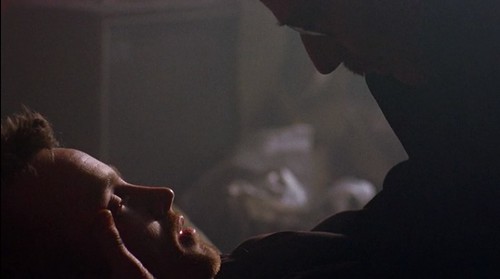
—You are not okay here at all
